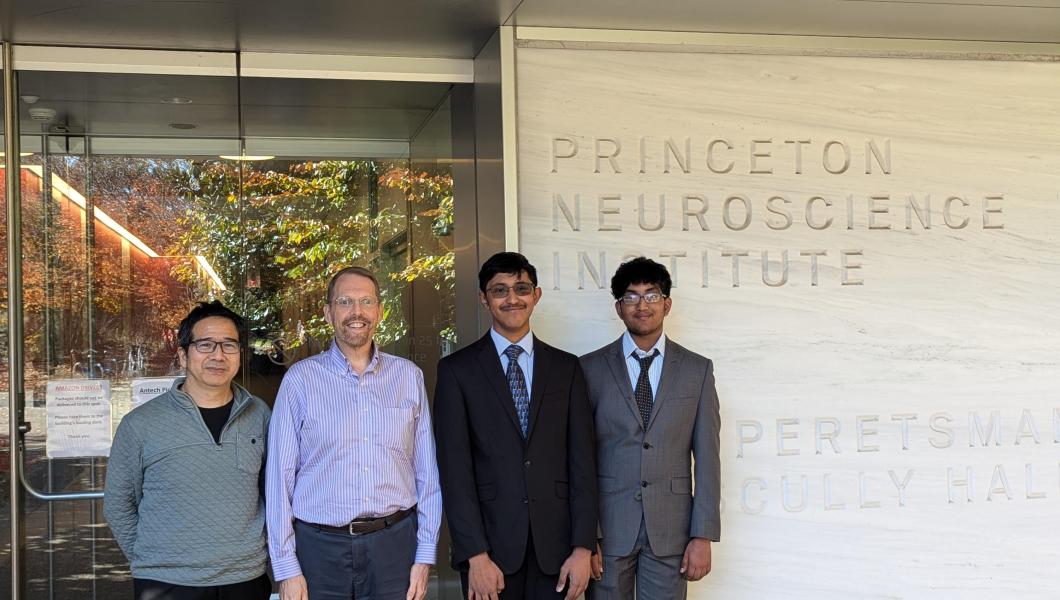NJIT's Honors College Scholars Showcase Research in Honors Interdisciplinary Research Forum

Close to 100 Albert Dorman Honors College scholars from Introduction to Research Writing and Introduction to Research Methods presented their semester's research, with topics ranging from TikTok influencer marketing to an analysis of healthcare in the United States.
Courses provide an overview of applying the scientific method to real-life research, including ethical concerns, qualitative and quantitative methods, and how to critically evaluate published research findings. Students work with faculty mentors on research projects, while writing proposals for the support of future research.
Faculty and staff were the judges, and after calculating their grades, announced the winners.
“I’m super grateful for the judges who showed up for us today,” said Louis I. Hamilton, dean of ADHC. “We're very appreciative of that, and we want to recognize all the great work that's been done here, and a shout out to the whole Honors team that came together to pull off this huge event.”
WINNERS
3rd: Marley Espiritu, Civil Engineering
“The social function of ‘Delusional’”
Third place winner, Marley Espiritu, focused her research on seeking greater clarity on the nature of delusion and the concept’s application and intent in society. After completing her study, Espiritu hopes to create a more accessible and open avenue for discussion for others on this topic.
“It's humanities, psychiatry, psycho-sociology and philosophy, but ultimately, I'm looking at the historical precedents and preconceptions of delusion, not clinical delusion, but more so how people project the concept of delusion onto others, and the greater implications of that,” added Espiritu.
The civil engineering major presented his research in a crash course like presentation and seperated it into four components: deconstructing delusion, politics of subjectivity, moralizing rationality and reductive patholization.
2nd: Puja Bhavsar, Biology
“Artificial Intelligence Enhanced Portable Optical Coherence Tomography Imaging for Ophthalmic Detection: Improving Ocular Health in Rural India”
Biology major Puja Bhavsar’s research looked into how to improve ocular health in rural India. She evaluated the performance of AI models to determine which one is most effective at improving retinal imaging for eye disease detection, assessed the economic and infrastructural challenges of access to the device and determined the best equipped AI integrated p-OCT and suggested how the task can be carried out.
She currently works at the AI for visual science lab at Columbia University, and it's part of the Department of Ophthalmology. “I work with the team to analyze data on the different AI models and how that could help clinicians,” she said. “Obviously Columbia is much further away from NJIT, but I'm able to collaborate virtually, and go in person for lab meetings sometimes too.
“Since most of my work goes with artificial intelligence and coding, I'm able to perform that virtually, whether that is writing code in Python, or communicating with the rest of my team members.”
Bhavsar took second place and her findings determined that the p-OCT device would be most accurate in diagnosing patients with the CNN (convolutional neural networks) model. Convolutional neural networks use three-dimensional data for image classification and object recognition tasks. Due to the lack of governmental funding in India, NGOs and philanthropic foundations can facilitate the deployment of advanced medical technologies in economically constrained regions.
1st: Kaitlyn Huang, Biology
“Addressing Anxiety and Depression in University Students via Understanding the Gut-Brain Axis and Promoting Gut-Healthy Dining Options”
Biology major Kaitlyn Huang worked on a study that looked at the gut-brain axis and how promoting gut-healthy dining options could reduce depression and anxiety in university students.
“I found that, yes, diet has a huge role in first of all making sure that the gut microbiome is very diverse, full of different bacteria. And after that, the good bacteria will actually help lower rates of depression,” said Huang.
Her conclusions pointed out that diets rich in plants, nuts and unsaturated fats are correlated with higher microbial diversity and lower levels of depression, while diets rich in saturated fats and processed foods are correlated with lower microbial diversity and higher levels of depression.
She added that nutritional therapy could be a solution to the wave of depression sweeping through universities, though it remains to be seen the exact impact of these measures on the treatment of depression.




